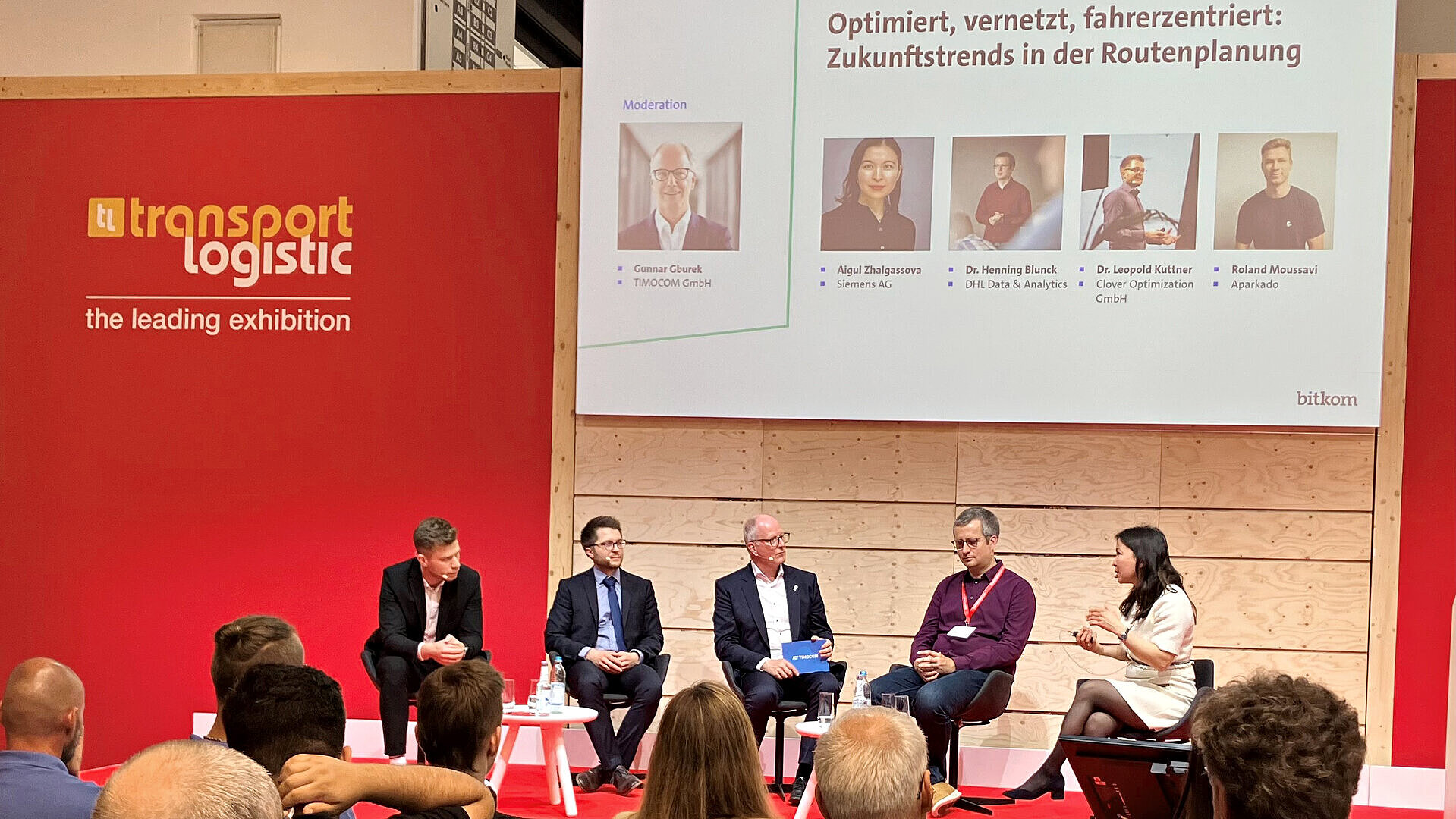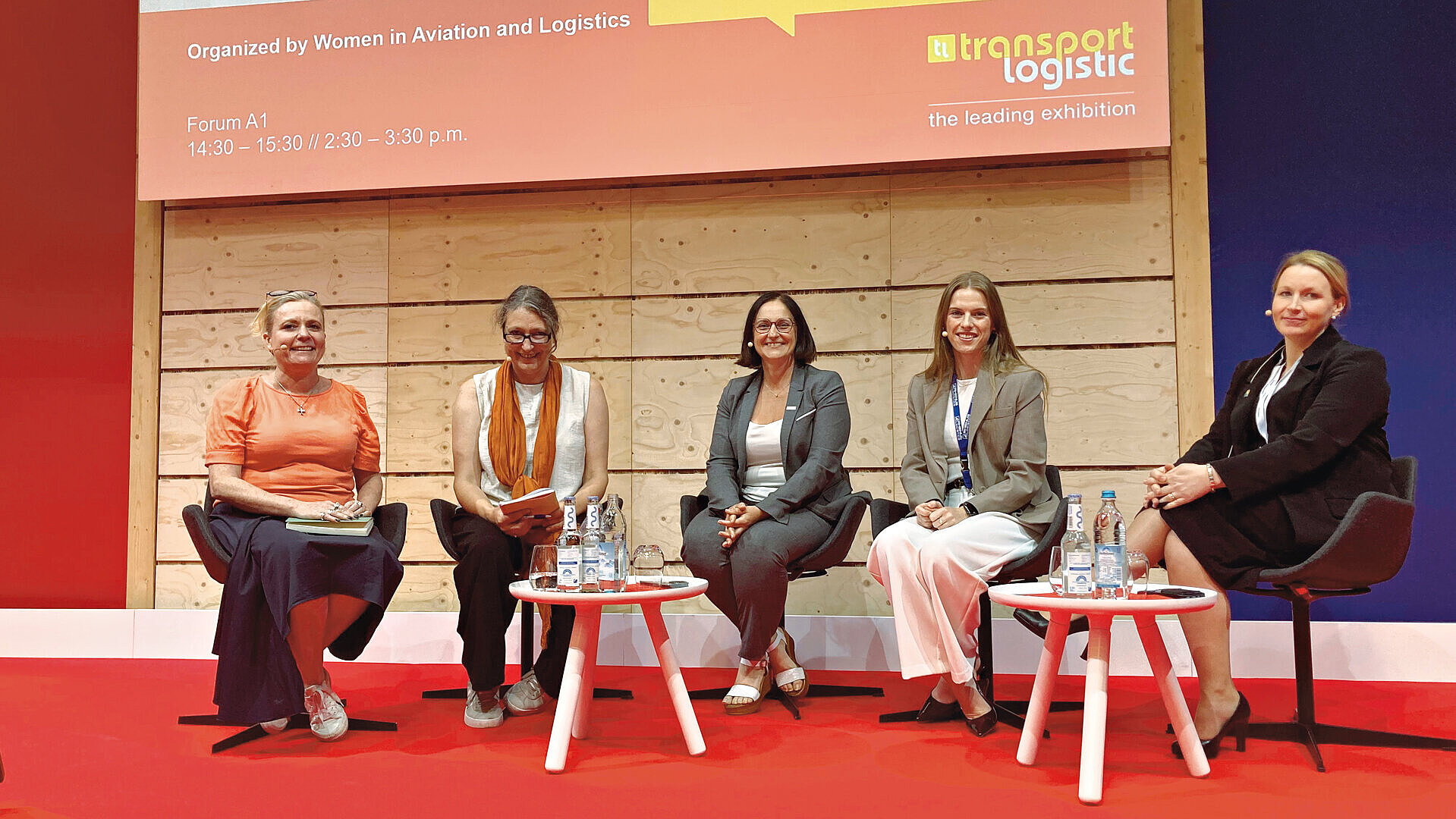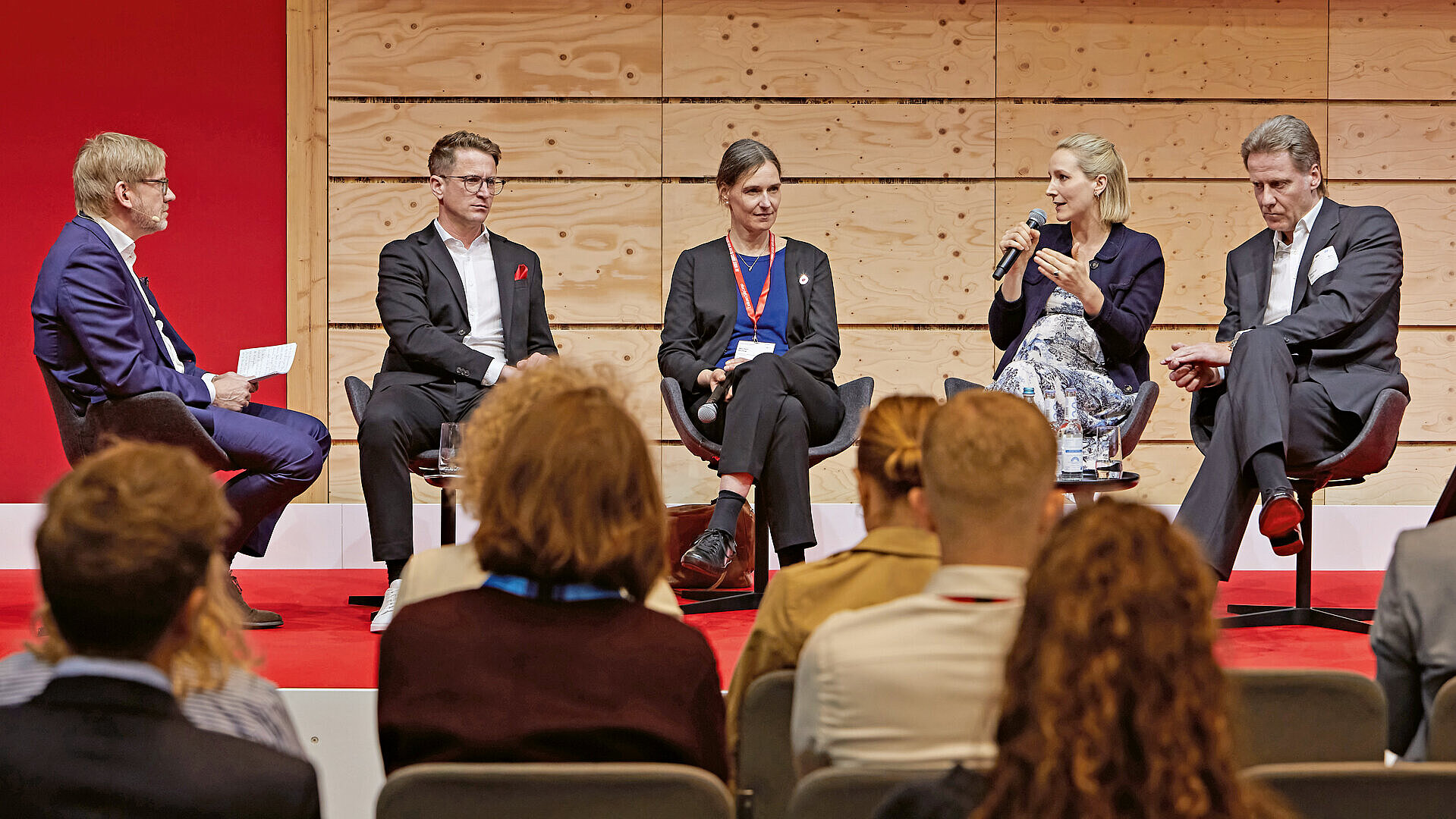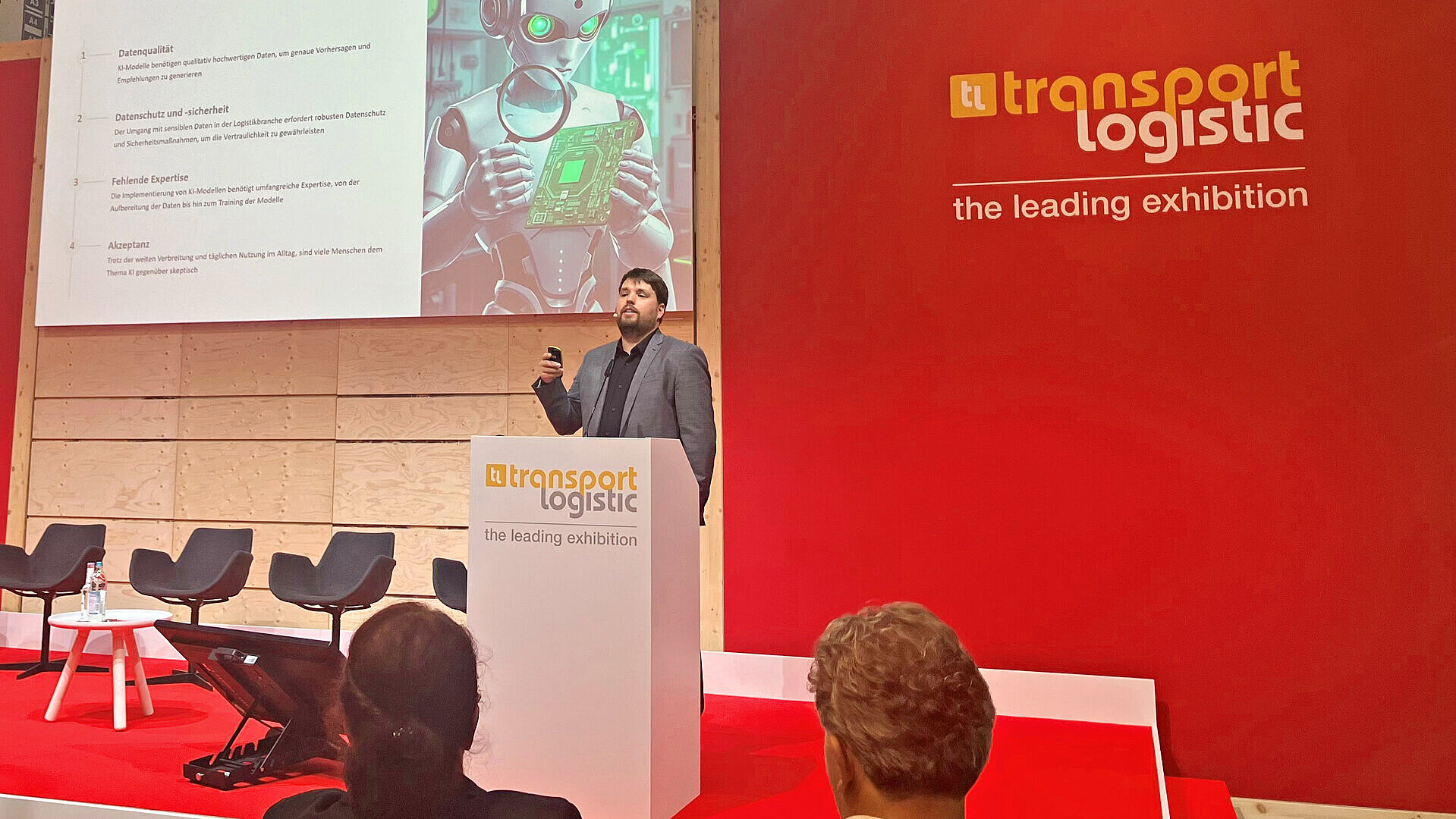
Tour planning of the future: between mathematics, humans and machines

The complexity of modern route planning can no longer be managed with pen and paper. Leopold Kuttner, Managing Director and co-founder of Clover Optimization, summed it up: ‘We provide a basis for decision-making.’ AI does not replace the dispatcher, it is there to take the pressure off – especially in stressful everyday situations.
Henning Blunck, Head of Routing & Operations Research at DHL Data & Analytics, also emphasised that dispatching is more than just planning trips: ‘Route planning is part of what a dispatcher does. But that's not all.’ Communication with carriers, responding to exceptions and coordinating with other departments will remain a human task – even in five years' time.
The role of the driver: partner instead of black box
The discussion focused in particular on drivers. Roland Moussavi is co-founder and CEO of Aparkado, a start-up that has developed an app that shows truck drivers free parking spaces along their route, and he emphasised: ‘We developed the app with drivers in mind.’ He is convinced that digital tools only work if they bring real benefits to drivers – and do not take control away from them.
Aigul Zhalgassova, responsible for Global Transport Management at Siemens, also emphasised the importance of the driver's perspective: ‘We are very interested in the well-being of the people who ensure the physical flow of goods. That is the basis before we start optimising route planning.’
Sustainability through intelligent planning
Optimising routes not only improves efficiency, but also benefits the environment. ‘If we simply optimise costs, we avoid empty runs – which is sustainable in itself,’ said Blunck. His software solution can already show at the touch of a button which transport routes are possible with electric trucks, biogas or hydrogen. But sustainability requires cooperation, as Zhalgassova explained. ‘Although our service providers plan the routes themselves, we make sure that the tours are socially responsible, fuel-efficient and environmentally friendly – because that's what our customers demand.’
Whether AI will eventually replace dispatchers has been a topic of discussion in the transport industry for several years. Kuttner believes: ‘Good dispatchers will have to manage even more vehicles in the future – so it helps if a system keeps track of things that humans cannot remember.’ Computers do not forget driving times, birthdays or personal preferences – things that only an experienced dispatcher has in their head.
None of the participants in the discussion expects the role of the dispatcher to disappear. ‘We will still be talking to people in ten years' time,’ says Zhalgassova. Her company is focusing specifically on training programmes for existing employees under the title Future Skills.
The vision of self-dispatching vehicles
The vision of self-dispatching vehicles – which independently avoid traffic jams, find parking spaces and deliver shipments – is technically feasible, but still a long way off. ‘The algorithms have reached a point where the data quality first needs to catch up,’ said Kuttner. Only when unstructured data, such as voice messages or videos, can be processed efficiently will autonomous dispatching become a reality. ‘It's not about replacing humans,’ Moussavi emphasised, ‘but about helping them make better decisions.’ The future of route planning is not a question of replacement, but of supplementation – and it starts now. (rok)



